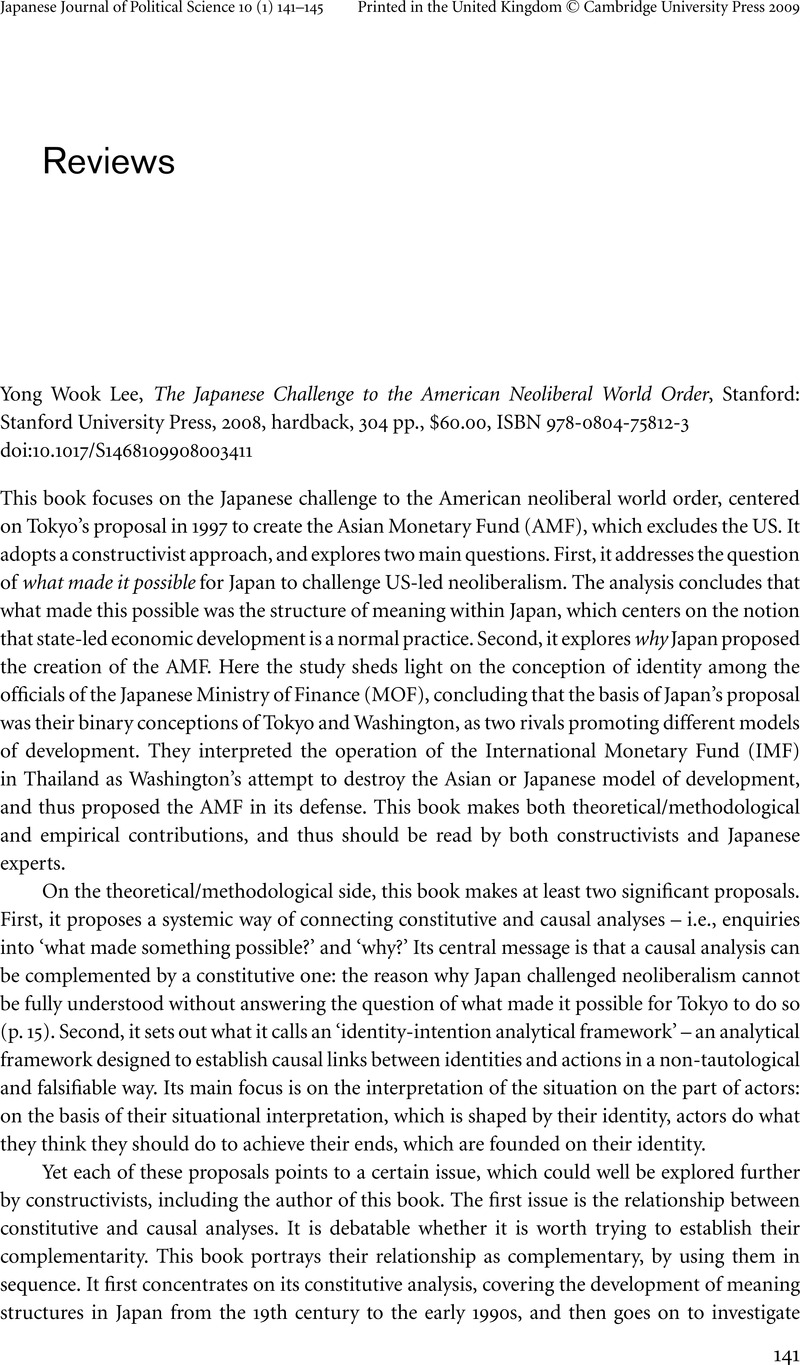No CrossRef data available.
Published online by Cambridge University Press: 01 April 2009

1 See Audie, Klotz and Lynch, Cecelia, Strategies for Research in Constructivist International Relations (Armonk: M. E. Sharpe, 2007), p. 15Google Scholar; and Finnemore, Martha, The Purpose of Intervention: Changing Beliefs About the Use of Force (Ithaca: Cornell University Press, 2003), pp. 14–15Google Scholar.
2 See Fearon, James and Wendt, Alexander, ‘Rationalism V. Constructivism: A Sceptical View’, in Carlsnaes, Walter, Risse, Thomas, and Simmons, Beth A. (eds.), Handbook of International Relations (London: Sage Publications, 2002), p. 59Google Scholar; and Duncan Snidal, ‘Rational Choice and International Relations’, in ibid., p. 75.
3 See Price, Richard and Tannenwald, Nina, ‘Norms and Deterrence: The Nuclear and Chemical Weapons Taboos’, in Katzenstein, Peter (ed.), The Culture of National Security: Norms and Identity in World Politics, (New York: Columbia University Press, 1996), p. 152Google Scholar; Paul Kowert and Jeffrey Legro, ‘Norms, Identity, and Their Limits: A Theoretical Reprise’, in ibid., p. 496; and Legro, Jeffrey W., ‘Culture and Preferences in the International Cooperation Two-Step’, American Political Science Review, 90 (1) (1996); 119–20CrossRefGoogle Scholar.
4 See Isao Miyaoka, ‘Collective Identity Formation in the U.S.-Japan Alliance in the Post-Cold War Period’, paper presented at the annual meeting of the International Studies Association, San Diego, 22 March 2006.